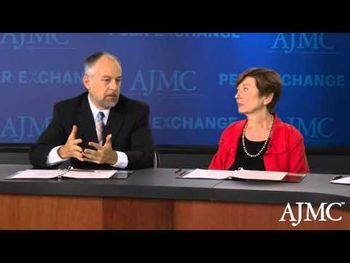
Health Care Delivery
Latest News


Some consumer-friendly features are still in final testing.

What we're reading, October 26, 2015: One-third of uninsured in California are unaware of premium subsidies and medical school enrollment among black men is down.

CMS has unveiled the latest improvements to HealthCare.gov. However, the agency was not able to complete all additional features in time for open enrollment and will roll the remaining ones out after November 1.

As the date for the comment period on the proposed guidance by HHS on 340B drug pricing draws near, read about the program and its impact on healthcare overall.

GAO made recommendations for safeguards to prevent enrollees from having Medicaid and exchange coverage at the same time.

Published in JAMA Oncology, the study found a significant difference in quality and access to care for black patients diagnosed with localized prostate cancer.

What we're reading, October 23, 2015: a new definition of dual eligibles, FDA warning on liver toxicity of Abbvie's hepatitis C drug, and Amgen's Repatha can cost patients more than just money.

Tiered and narrow insurance network products are increasing in US health insurance markets, particularly in the health insurance exchange market, according to an analysis by Avalere Health.

Senator Tim Kaine (D-VA) discussed Medicaid expansion, the Affordable Care Act, and politics at America's Health Insurance Plans' National Conference on Medicaid.

Out-of-pocket expenses for medications in typical silver plans are twice as high as they are in employer-sponsored plans, leading patients to fill and refill medications less frequently, which has important health implications.

What we're reading, October 20, 2015: Mark McClellan, MD, PhD, will lead Duke's Center for Health Policy; the eligible uninsured will face higher fines in 2016; and Canadian researchers use digital media to improve quality and care outcomes.

A new study in JAMA Internal Medicine has found that financial integration between physicians and hospitals has led to higher spending in outpatient care.

By the end of 2016, 10 million people are expected to have insurance coverage through the health insurance marketplaces and be paying their premiums, which is a small increase from the current 9.1 million individuals.

As the country moves from volume to value, accountable care organizations (ACOs) can play a key role during the transition from fee-for-service. How well do you know ACOs?

The 15th annual survey finds the march of managed care continues in expansion and non-expansion states alike. Enrollment went up in states that did not expand under the Affordable Care Act, though less rapidly.

Patients are embracing and exploring alternatives to the traditional office practice, and the expansion of retail health clinics is a big part of that. However, the American College of Physicians said these clinics are best used as a backup alternative to a primary care physician.

One way to make all patients with cancer, regardless of socioeconomic status, feel like they're on the same level when receiving treatment is to ensure they know they're being taken care of, said Mary Lou Smith, MBA, co-founder of the Research Advocacy Network.

The Samfund, the first and largest group created to help young adults address the costs of cancer, is featured in the current issue of Evidence-Based Oncology, a publication of The American Journal of Managed Care. Samfund officers Samantha Watson, MBA, and Michelle S. Landwehr, MPH, address the challenges of "financial toxicity" for young adult survivors.

More than $240 million has been awarded to support programs that increase access to primary healthcare in medically underserved communities, announced HHS Secretary Sylvia M. Burwell.

A panel discussion during the 2nd PMC/BIO Solutions Summit identified barriers and discussed the path forward to improve clinical integration of precision medicine.

The financial aftereffects of cancer have a tremendous impact on young adults as they move forward with their lives after treatment.

Earlier this year, the legislature laid the groundwork for Medicaid expansion to occur in 2016.

What we're reading, October 14, 2015: Jeb Bush offers a detailed proposal for his plan to replace parts of the Affordable Care Act, California places a cap on out-of-pocket costs for consumers, and people addicted to opioids can't get the treatment they need.

What we're reading on October 13, 2015: presidential hopeful Marco Rubio taps health policy expert Avik Roy to advise his campaign, Democrats will tangle over healthcare in first debate, and the US pays 3 times as much for medicine as Britain.









